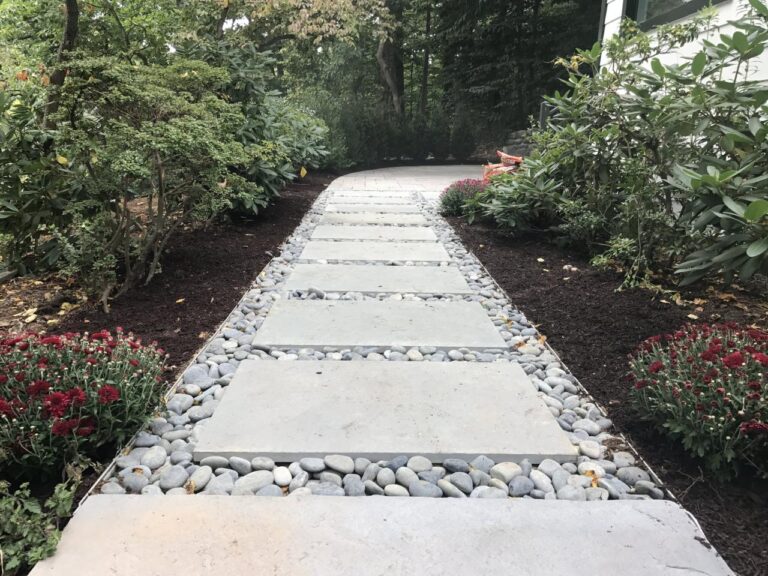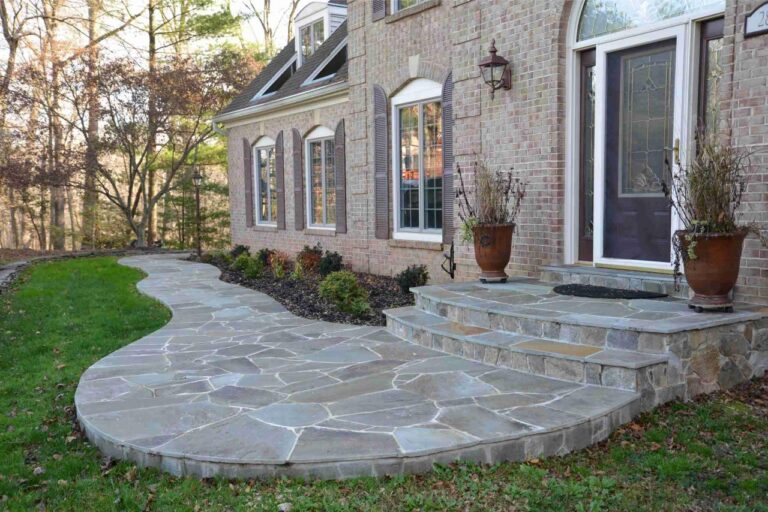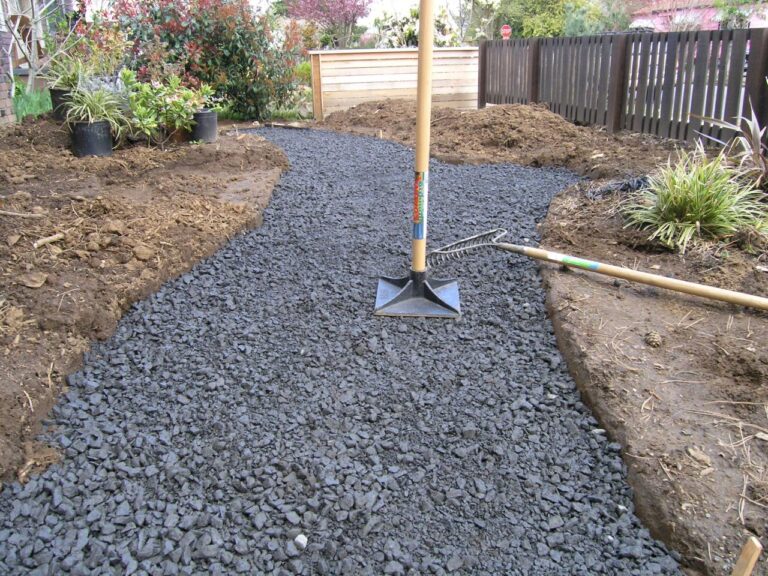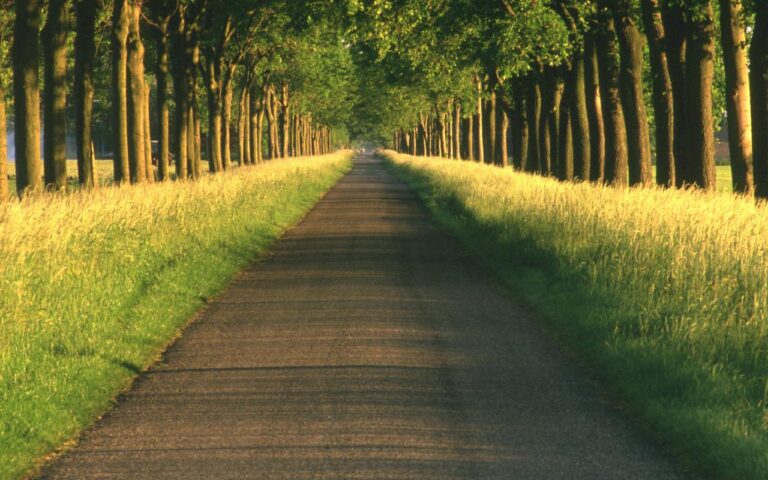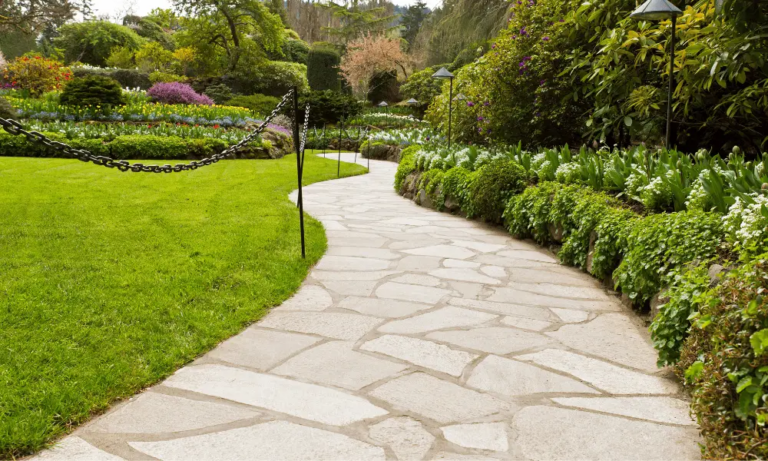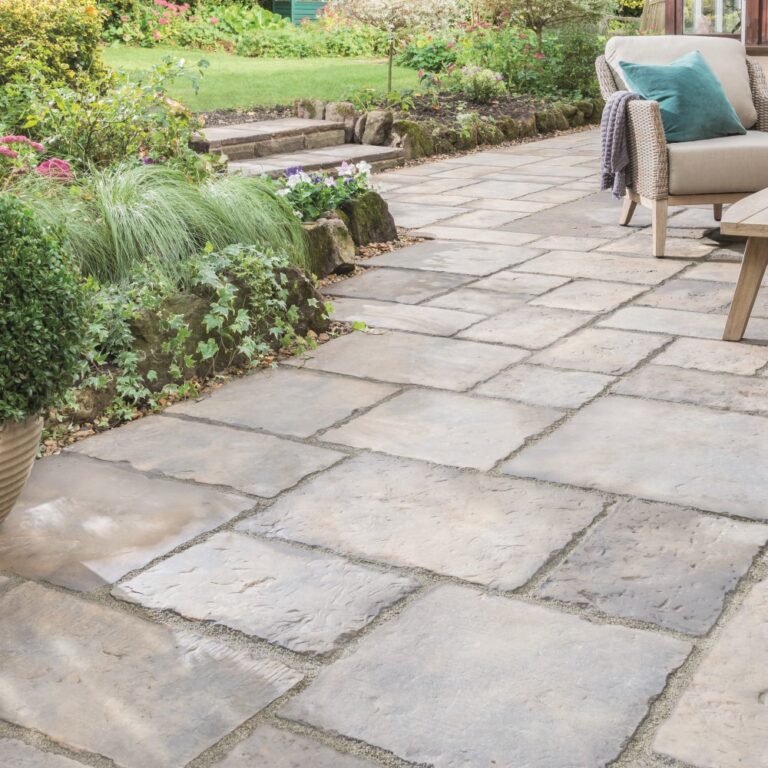Walkway Installation Near Me
A walkway installation near me offers a transformative approach to enhancing curb appeal and property value. This guide delves into the multifaceted world of walkway construction, from initial planning and material selection to the intricacies of installation and long-term maintenance. We’ll explore various walkway materials, comparing their durability, aesthetic qualities, and environmental impact, ensuring you make informed decisions tailored to your specific needs and budget. Understanding the nuances of walkway design, including accessibility features and integration with your existing landscape, is crucial for creating a functional and visually pleasing addition to your property. This comprehensive guide equips you with the knowledge to confidently navigate the process, from finding reputable local installers to ensuring a successful and lasting installation.
Whether you envision a classic concrete path, a sophisticated brick walkway, or a rustic gravel pathway, this guide provides step-by-step instructions and expert advice to guide you through each stage of the project. We’ll cover site preparation, installation techniques, and post-installation care, ensuring your walkway remains a beautiful and functional asset for years to come. Furthermore, we’ll offer valuable insights into selecting the right installer, negotiating contracts, and addressing potential challenges throughout the process. Ultimately, this resource aims to empower you to create a walkway that perfectly complements your home and enhances your outdoor living space.
Understanding Walkway Installation Needs
Planning a walkway installation requires careful consideration of several factors to ensure both functionality and aesthetic appeal. This section Identifies key aspects to address before beginning the project.
Common Walkway Materials and Climate Considerations
Various materials suit different climates. Concrete, durable and versatile, performs well in most conditions but can crack in freeze-thaw cycles. Pavers, offering flexibility in design and easier repair, are suitable for various climates. Gravel walkways, economical and permeable, are ideal for drainage in wetter climates but may require more maintenance. Natural stone, like flagstone or slate, provides a luxurious look but can be costly and requires professional installation. Wood, while aesthetically pleasing, demands regular maintenance and may not withstand heavy use or extreme weather.
Walkway Installation Methods: A Comparison
Three primary installation methods exist: concrete pours, paver installations, and gravel layouts. Concrete pouring offers a solid, continuous surface, but requires skilled labor and careful preparation. Paver installations allow for pattern variations and easier repairs but need a well-prepared base. Gravel walkways are simpler to install, providing excellent drainage, but may shift over time and require regular replenishment.
Site Preparation for Walkway Installation
Proper site preparation is crucial. This includes clearing vegetation, removing topsoil to a specified depth, compacting the base material (e.g., gravel, sand), and ensuring a level surface. Accurate measurements and marking of the walkway path are essential before any installation begins. The specific depth of excavation will vary based on the chosen walkway material and soil conditions.
The Importance of Proper Drainage in Walkway Design
Effective drainage prevents water accumulation, which can lead to erosion, cracking, and damage to the walkway. Proper grading, the use of permeable materials, and the incorporation of drainage features like gravel beds or French drains are essential. Consider the surrounding landscape’s natural drainage patterns to avoid directing water toward the foundation of a house or other structures.
Finding Local Walkway Installers
Locating reputable contractors is key to a successful project. Several resources can help you find qualified professionals.
Resources for Finding Local Contractors
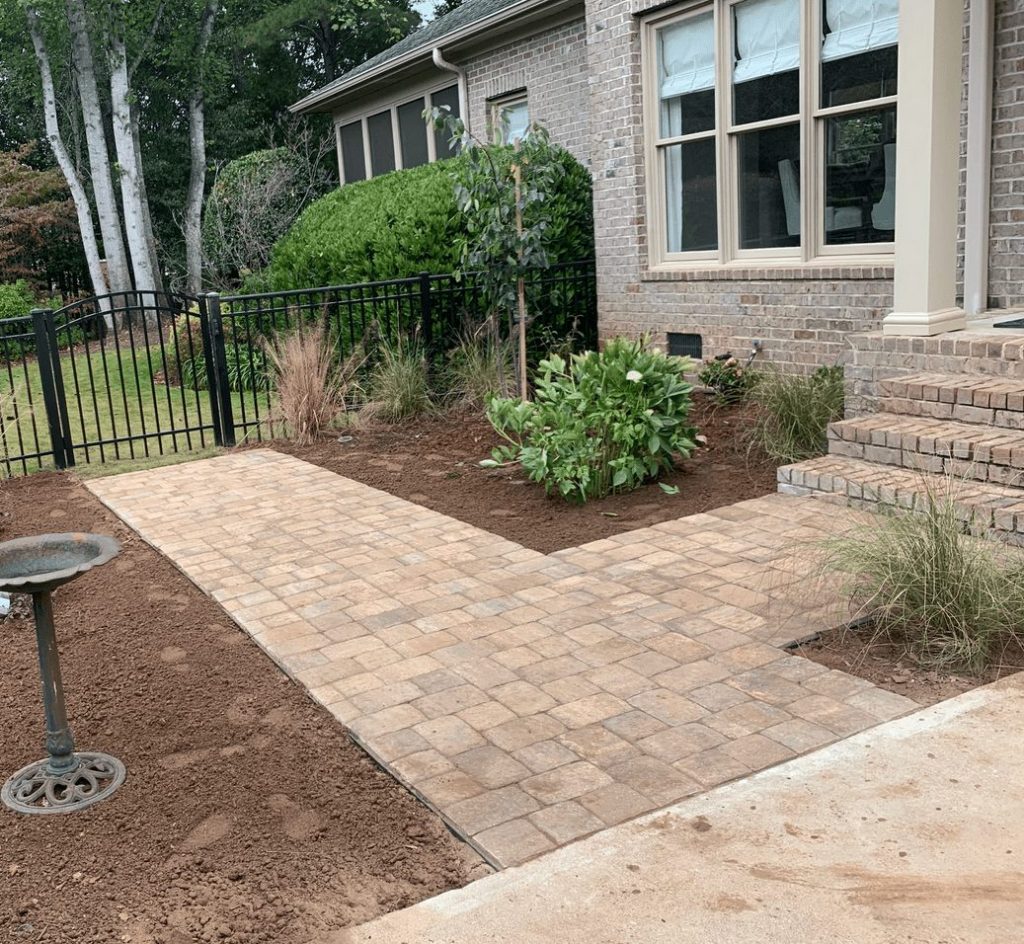
Source: collinsbrookelandscape.com
Several avenues exist to find local walkway installers. Online directories, local home improvement stores, and referrals from friends and neighbors are excellent starting points. Checking online review sites can also provide valuable insights into the quality of service provided by different contractors.
| Company Name | Contact Information | Services Offered | Customer Reviews |
|---|---|---|---|
| Example Company A | (555) 123-4567, example@email.com | Concrete, Paver, Gravel Walkways | 4.5 stars (based on 100 reviews) |
| Example Company B | (555) 987-6543, another@email.com | Paver and Natural Stone Walkways | 4.0 stars (based on 50 reviews) |
| Example Company C | (555) 555-5555, contact@email.com | All Walkway Types, Design Services | 4.8 stars (based on 200 reviews) |
Comparison of Walkway Material Pricing
| Material | Price per Square Foot (Estimate) |
|---|---|
| Concrete | $5-$15 |
| Pavers | $8-$25 |
| Gravel | $2-$5 |
| Natural Stone | $15-$50+ |
Note: Prices are estimates and vary significantly based on location, material quality, and labor costs.
Questions to Ask Potential Installers
Before hiring, ask about experience, licensing, insurance, project timelines, warranties, and material sourcing. Clarify payment schedules and dispute resolution processes.
Essential Contract Elements
The contract should detail the project scope, materials, timelines, payment terms, warranties, and dispute resolution mechanisms. It should also include clear descriptions of the work to be performed and any contingencies.
Walkway Design Considerations: Walkway Installation Near Me
Effective walkway design balances functionality, aesthetics, and safety. Careful planning ensures a practical and visually appealing addition to your property.
Walkway Width and Length Determination
The walkway width should accommodate the intended use. A narrow path suits pedestrian traffic, while wider walkways accommodate wheelchairs or multiple people walking side-by-side. Length is determined by the distance to be covered and may incorporate curves or changes in direction for visual interest.
Incorporating Accessibility Features
Accessibility is paramount. Ramps with gentle slopes should be incorporated for wheelchair access. Materials should be chosen for slip resistance, especially in wet conditions. Sufficient space should be provided for turning radii.
Creating Visually Appealing Walkways, Walkway installation near me
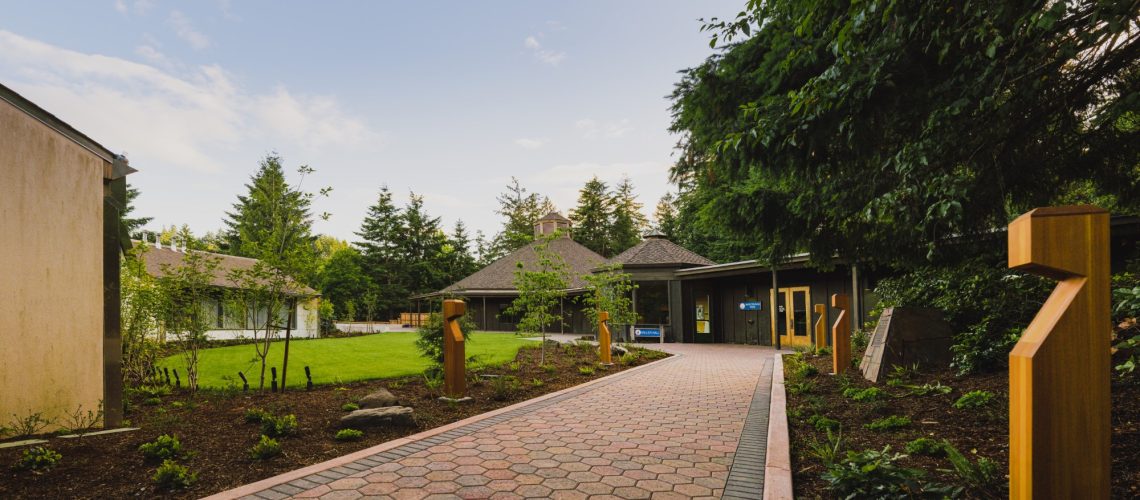
Source: sequoiastonescapes.com
Design elements such as curves, changes in material, or the incorporation of landscaping can enhance visual appeal. Consider using contrasting colors or textures to create visual interest. The walkway’s style should complement the overall landscaping and architectural style of the property.
Considering the Surrounding Landscape
The walkway should integrate seamlessly with the surrounding environment. Consider existing plants, trees, and other landscape features. The walkway’s material and color should complement the natural surroundings.
Walkway Materials and Their Properties
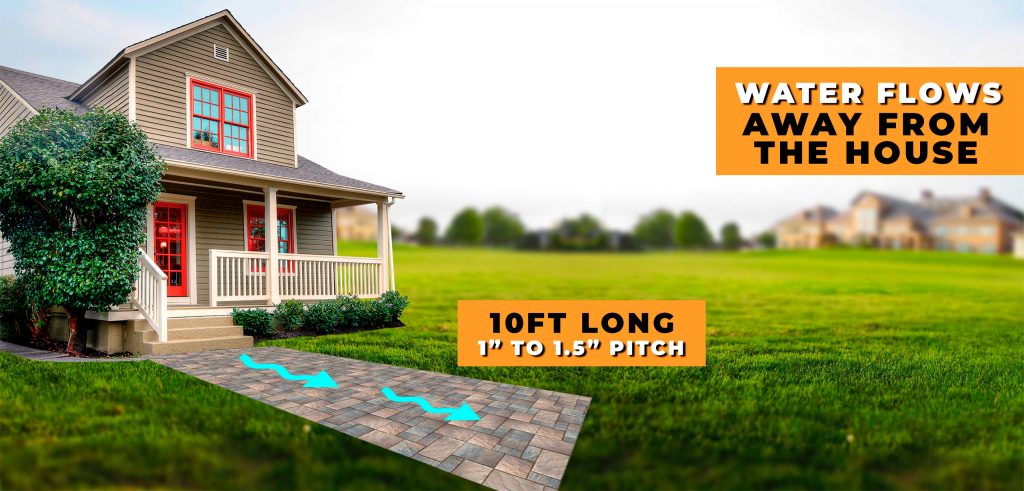
Source: affordablepatio.com
A variety of materials offer diverse properties, impacting durability, maintenance, and environmental impact.
Durability and Longevity of Walkway Materials
Concrete is highly durable but susceptible to cracking. Pavers offer good durability and repairability. Natural stone is long-lasting but can be expensive. Wood requires more maintenance and has a shorter lifespan compared to other options. Gravel is durable but may shift over time.
Maintenance Requirements for Different Materials
Concrete may require occasional sealing or crack repair. Pavers may need occasional weed removal and joint sand replenishment. Natural stone may need sealing to prevent staining. Wood requires regular cleaning, staining, and potential repair or replacement. Gravel needs occasional replenishment.
Examples of Effective Material Combinations
A walkway might use concrete for the main path and pavers for decorative accents. Natural stones could be incorporated as borders or stepping stones within a gravel pathway. Wood can create a charming walkway in a garden setting.
Environmental Impacts of Walkway Materials
Concrete production has a high carbon footprint. Pavers have varying environmental impacts depending on their material (e.g., recycled materials are preferable). Natural stone extraction can cause environmental damage. Wood choices should prioritize sustainably sourced materials. Gravel has a relatively low environmental impact.
The Installation Process
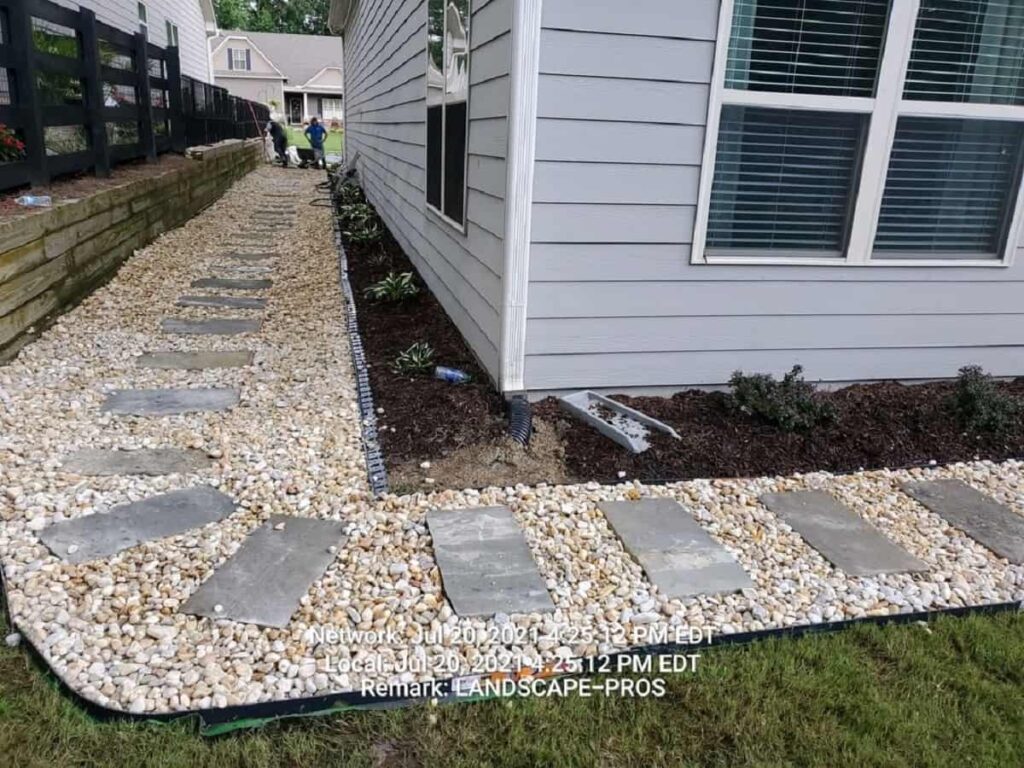
Source: landscaperspros.com
The installation process varies depending on the chosen material. Each method requires careful planning and execution for optimal results.
Installing a Concrete Walkway
1. Excavation and base preparation: Dig a trench to the specified depth, compact the base, and add a sub-base if necessary. 2. Formwork: Construct forms to define the walkway’s shape and dimensions. 3. Concrete pouring: Pour the concrete into the forms, ensuring proper consolidation to eliminate air pockets. 4. Finishing: Level and smooth the concrete surface using appropriate tools. 5. Curing: Allow the concrete to cure for several days, keeping it moist to prevent cracking.
Installing Paver Walkways
1. Base preparation: Excavate, compact the bas, and add a layer of sand or gravel. 2. Paver placement: Lay the pavers in the desired pattern, ensuring proper spacing and alignment. 3. Joint filling: Fill the joints between pavers with sand or polymeric sand to stabilize the surface and prevent weed growth. 4. Compaction: Compact the pavers to ensure stability.
Installing a Gravel Walkway
1. Excavation and shaping: Excavate to the desired depth and shape of the area. 2. Weed barrier: Install a weed barrier fabric to prevent weed growth. 3. Gravel placement: Spread a layer of gravel over the weed barrier, ensuring even distribution. 4. Compaction (optional): Lightly compact the gravel to improve stability.
Post-Installation Care and Maintenance
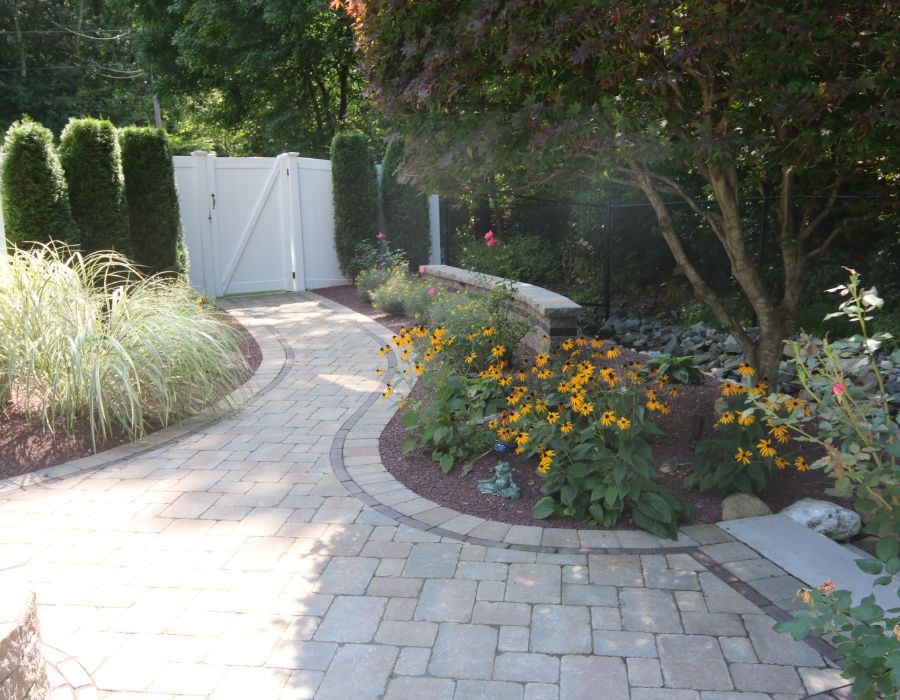
Source: landscapesolutionsri.com
Regular maintenance extends the lifespan of any walkway and maintains its aesthetic appeal.
Regular Walkway Maintenance Schedule
A yearly inspection for cracks, weeds, or damage is recommended. Cleaning should be performed as needed, using appropriate cleaning solutions for the specific material. Resealing or other preventative maintenance should be scheduled as recommended for the material used.
Cleaning and Repairing Common Walkway Issues
Cracks in concrete can be repaired using patching compounds. Weeds can be removed manually or with herbicides. Stains can be removed with appropriate cleaning solutions. Loose pavers should be reset, and joint sand should be replenished as needed.
Preventative Maintenance for Extended Lifespan
Regular cleaning, sealing (when applicable), and prompt repair of any damage are crucial for extending the walkway’s lifespan. Addressing small issues before they become major problems saves time and money in the long run.
Common Walkway Problems and Solutions
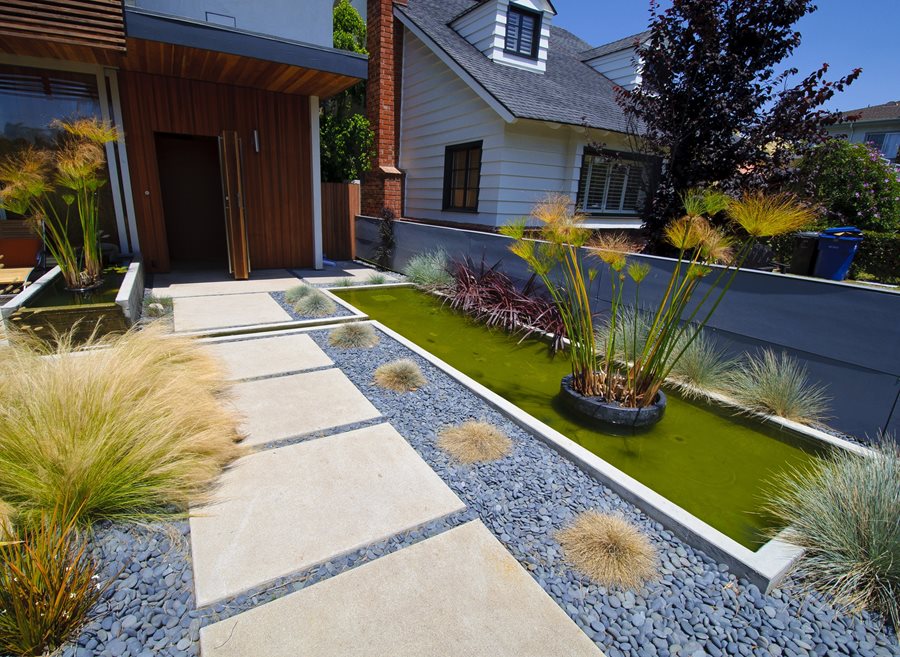
Source: landscapingnetwork.com
- Problem: Cracks in concrete. Solution: Repair with patching compound.
- Problem: Weed growth between pavers. Solution: Remove weeds and replenish joint sand.
- Problem: Stains on walkway surface. Solution: Clean with the appropriate cleaning solution.
- Problem: Shifting gravel. Solution: Add more gravel and lightly compact.
- Problem: Loose pavers. Solution: Reset pavers and compact.
Query Resolution
What is the average cost of walkway installation?
The cost varies greatly depending on materials, size, complexity, and labor costs in your area. Get multiple quotes from installers for accurate pricing.
How long does walkway installation typically take?
The duration depends on the size and complexity of the project, as well as weather conditions. Expect a range from a few days to several weeks.
What permits are required for walkway installation?
Permit requirements vary by location. Check with your local building department before starting the project.
Can I install a walkway myself?
Smaller, simpler projects might be DIY-able, but larger or more complex installations are best left to professionals for quality and safety.
How do I choose the right walkway material for my climate?
Consider freeze-thaw cycles, rainfall, and sun exposure. Some materials, like concrete, are more durable in harsh climates than others.
